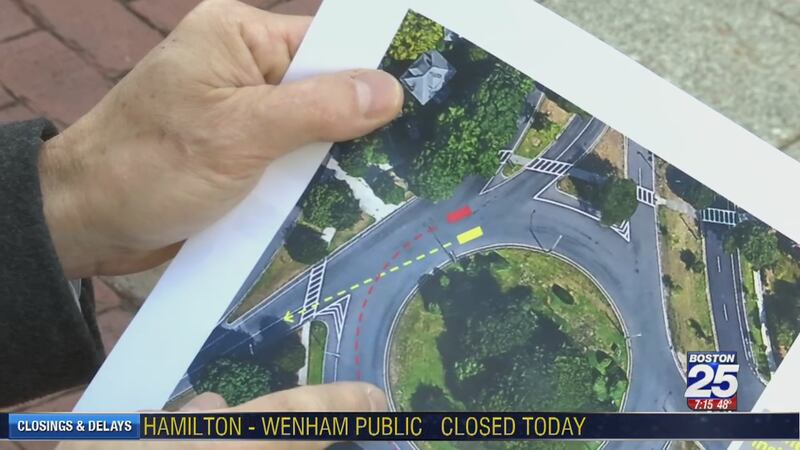BOSTON — Massachusetts has been home to some famous inventions, like the internet and the telephone.
Another one is that unique traffic configuration known as the rotary.
It became popular in the state back in the 1950s.
Massachusetts traffic officials want to now make rotaries a thing of the past. There are about 100 still in use across the state.
“When I come up on an old-style rotary, I feel like I am entering a roller derby," Northeastern engineering professor Peter Furth said. "No car knows where they have the right to go. It’s every man for himself.”
Furth explained the problem is basic to the design of a rotary, as one car may be on the inside lane and want to exit and another car might be on the outside lane and want to continue.
“If they both think they have right away and just continue, you’re going to get a smash," he said.
Those crashes are just what state transportation officials want to avoid. They’re in the process of doing away with the old version of what they call a “circular intersection.”
Furth believes the time is right for this change.
“Massachusetts stated to realize by the mid-60s that their rotaries were disasters," Furth said. "They just couldn’t handle the levels of traffic that were leading to a lot of accidents."
The replacement design is called a roundabout.
Drivers have to slow down on approach, and commit to highly marked exit lanes before they enter.
One of the more recent examples of this transformation is in Wakefield at the intersection of Route 128 and Route 129.
"One safety benefit is just making it more clear to drivers where they are supposed to be within the intersection," highway design engineer for the state Department of Transportation Andy Paul said.
While he’s cooking at Fred’s Franks in Wakefield, James Langell has a clear view of the rotary.
He said he still sees about a crash a month there, despite the redesign.
“Even after its been up for over a year now, every single day, you will hear horns honking," he said.
Paul admits there is definitely a learning curve for drivers, but in the end, said roundabouts are safer than rotaries and traditional intersections.
“The most severe crashes we see on all of our roadways are either head on or angle crashes and those are eliminated at a roundabout based on geometry," he said. "You can only have a side swipe or softer angle collision at a roundabout.”
Boston 25 has learned there are five rotaries in the state considered priorities.
One is in Gardner on Route 2 where there have been a high number of accidents
The others are in Ayer, Concord, Middleborough, and Revere.
State officials also study traffic flow as well as safety issues when they consider how to redesign a rotary.
There have been cases when they have added lanes if there is room.
Modifying a rotary into a roundabout can also be a cost-effective solution.
In one case, an upgrade was estimated to cost $10 million.
When engineers decided they could make it a roundabout instead, the cost came in under $1 million.
Cox Media Group








